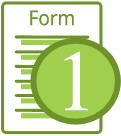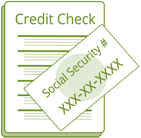March 21, 2012 (Jeff Alan)
Monthly default rates on first and second mortgages declined for the second consecutive month in February, helping to contribute to an overall decline in the S&P/Experian Consumer Credit Default Indices from 2.16 percent in January to 2.09 in February.
First mortgage default rates fell from 2.08 percent in January to 2.02 percent in February. It was the second consecutive month that first mortgage default rates have declined following four months of increases. Default rates on second mortgages also declined last month, falling from 1.30 percent in January to 1.20 percent in February.
Mortgage default rates have been steadily declining since 2009 when second mortgage default rates peaked at 4.66 percent in March, followed several months later by first mortgage defaults which peaked at 5.67 percent in August.
A year ago, the default rate on first mortgages was 2.45 percent and for second mortgages, the default rate was 1.46 percent.
Default rates on auto loans also declined falling from 1.27 percent in January to 1.22 percent in February while default rates on bank cards also continued to improve, decreasing from 4.57 percent in January to 4.41 percent in February.
David M. Blitzer, Managing Director and Chairman of the Index Committee for S&P Indices, stated, “It seems that 2012 has begun on a positive note for the consumer. We appear to be resuming the downward trend in consumer default rates that began in the spring of 2009. With last month’s release we reported that the second half of 2011 saw a rise in consumer defaults, led by four consecutive monthly increases in first mortgage default rates. January and February’s combined reports shows broad based declines in all types of default rates, which is a good way to start the year.”
Four of the five Metropolitan Statistical Areas (MSAs) saw default rates decline in the monthly Indices with Los Angeles posting the largest decline in default rates for the second consecutive month, falling 0.49 percentage points to 1.87 percent in February from 2.36 percent in January. In February 2011, the default rate in Los Angeles was 2.70 percent.
Miami posted the second largest decline, falling 0.26 percentage points to 4.54 percent in February from 4.80 percent in January. A year ago the default rate in Miami was 6.05 percent.
The default rate in New York declined by 0.19 percentage points to 2.04 percent in February from 2.23 percent in January and was also down from a year earlier when the default rate stood at 2.53 percent.
The smallest decline in default rates was recorded in Chicago, which fell 0.05 percentage points to 2.71 percent from 2.76 percent in January. In February 2011, the default rate in Chicago was 2.82 percent.
Dallas was the only MSA to post an increase last month, climbing from 1.53 in January to 1.61 percent in February. A year ago, the default rate in Dallas was 1.78 percent.
“The first mortgage default rate fell by six basis points in February, bringing this rate closer to the lows seen in the summer of 2011. Second mortgage and bank card default rates fell by even more during that month. In fact, both second mortgage and bank card default rates are their lowest in the three-year history of these data. While bank cards tend to have the highest default rate, at 4.41 % it is now less than half of the 9.15% recorded less than two years ago,” Blitzer added.
Tags: S&P, Experian, Consumer Credit Default Indices, mortgage default rates, auto loan default rates, bank card default rates
Source:
S&P/Experian




